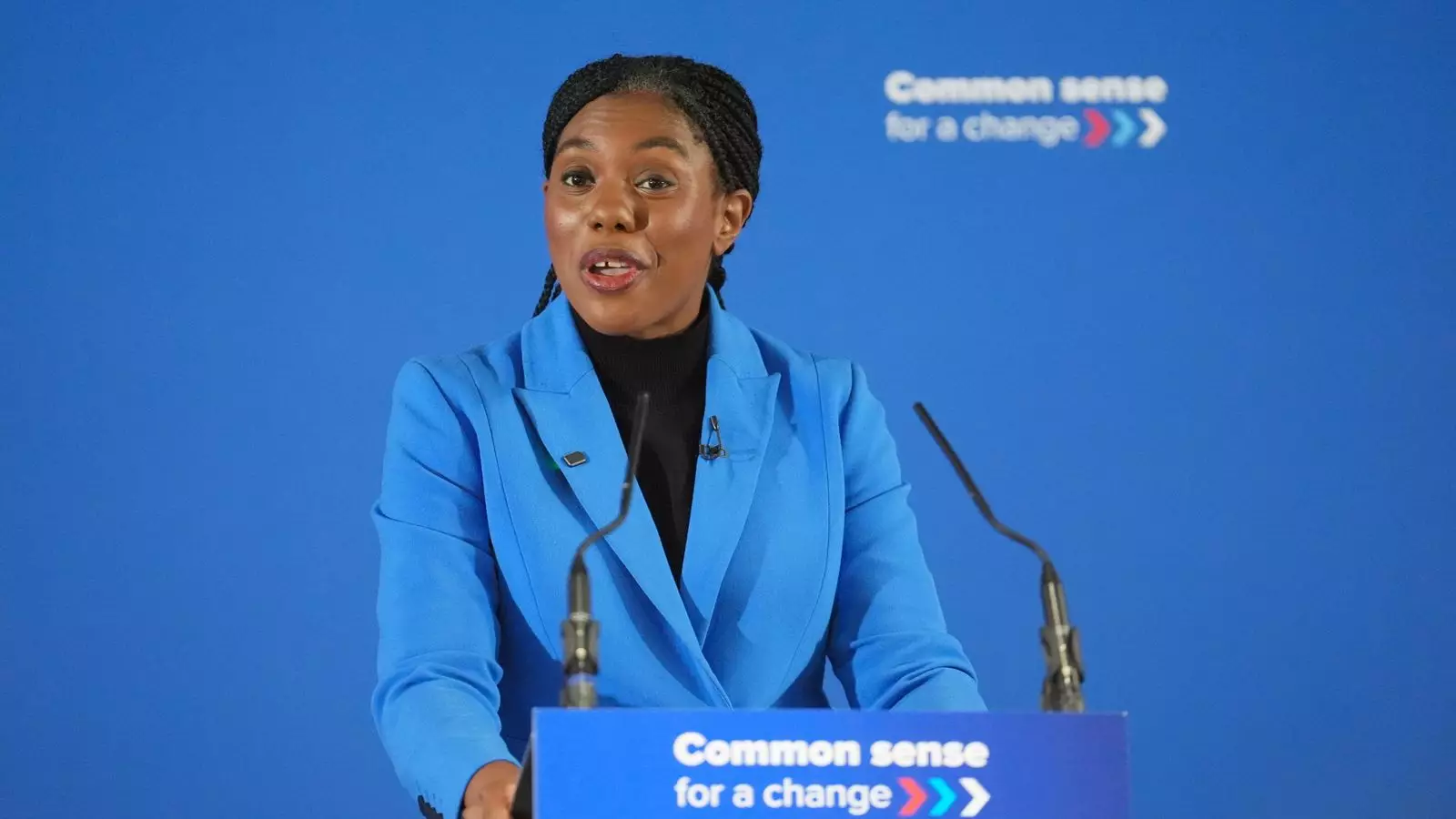As discussions surrounding welfare reform swirl through the corridors of power, it is vital to question the motivations behind proposals coming from the Conservative side. Kemi Badenoch has recently extended a lifeline to the Labour Party, with a deal in which Conservative votes would come in handy to push contentious changes to disability benefits. This political maneuver not only raises eyebrows but also ignites serious concerns among the public about the fate of vulnerable populations in the UK.
Badenoch’s three prerequisites delivered via Sky News underscore a willingness to play cold political chess with the welfare system. She insists that Keir Starmer must commit to cutting the welfare budget, facilitating employment, and avoiding tax increases in return for Conservative backing. Such demands, cloaked in rhetoric about “making things work,” hint at a larger agenda prioritizing fiscal austerity over the fundamental needs of disabled citizens who constitute a significant portion of the welfare demographic.
Creating a Toxic Political Environment
The mere mention of reducing welfare expenditures to balance the budget is all too familiar in contemporary British politics, a narrative painted with a stark utilitarian brush. Here, the government seems to equate a cut in financial aid with moral virtue, dodging responsibility for systemic inequalities exacerbated by economic conditions. The notion that welfare budgeting is too high is not only misleading but also dangerously simplistically overlooks the nuanced realities faced by disabled individuals.
Labour’s vocal disapproval, culminating in an unprecedented rebellion marked by 119 signatures on an amendment opposing the bill, points to a firm understanding of the implications of the proposed changes. This widespread dissent reflects growing disillusionment with policies that threaten to plunge the most vulnerable deeper into poverty, creating an underclass that the government seems all too willing to ignore. Add to this the concerns voiced by prominent figures such as Sadiq Khan, who casts the impending cuts as an existential threat to the financial safety net, and you realize the political stakes couldn’t be higher.
Political Expediency vs. Human Lives
One cannot help but view the situation through a lens of ethical scrutiny. The government’s insistence on the need for “reform” belies a worrying indifference to the palpable human suffering that results from slashing benefits. Keir Starmer has attempted to reclaim the narrative, asserting that the reforms are geared toward a better future, yet one must ask: whose future? The potential loss of benefits for 370,000 PIP claimants and the overall impact on three million people raises alarm bells that the urgency of “fixing” the system may not equate to the care needed for those it intends to serve.
Moreover, the prospect of depending on Conservative votes to secure the passage of such pivotal legislation is troubling in its own right. As Neil Duncan-Jordan, the Labour MP for Poole, keenly points out, the inability of a governing party to secure its own ranks speaks volumes about its leadership and commitment to its foundational policies. The idea that Labour might need to engage with the Conservative Party—whose track record has been marred by austerity and neglect—puts into question its integrity as a champion for welfare reform.
A Need for Real Change
The hostile climate warrants that reform efforts not only acknowledge the pressing need for an overhaul of welfare systems but also require a recalibrated approach that takes poverty alleviation into account. The stark contrast between financial prudence and ethical governance speaks to a broader ideological divide. The future must not include a trade-off between fiscal responsibility and the well-being of the citizenry.
As the clock ticks toward a pivotal vote that could drastically alter the landscape for millions, it becomes all too clear that the players are more focused on political posture than on ushering in solutions that embody compassion and inclusivity. This reflects a race to the bottom that cannot be ignored. The stakes are too high for disabled individuals, who deserve support rather than a legislative gamble that could redefine their survival, pushing an already vulnerable group further into societal margins.

Leave a Reply